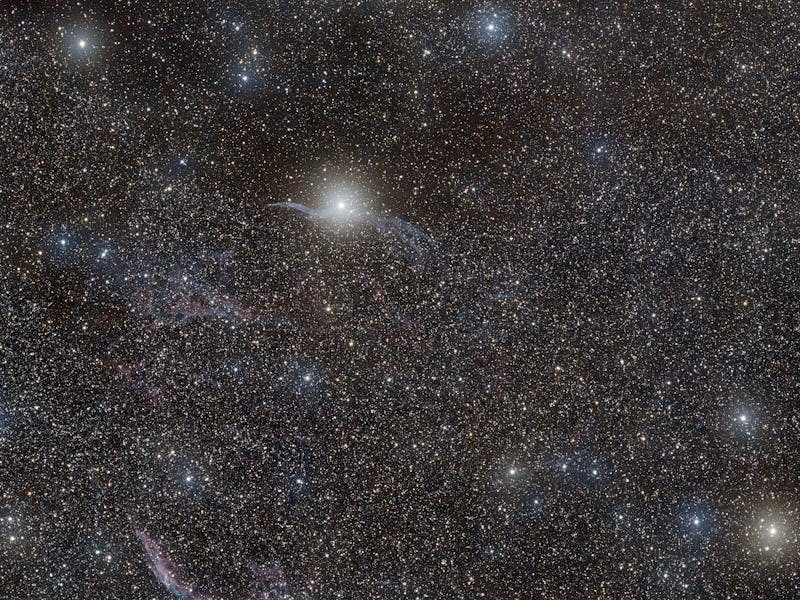‘Accidental Astronomy:’ A New Book Explores Everything In Space We Found By Accident
“It’s fun to be in a universe where we can be surprised.”

Chris Lintott tries to observe everything from asteroids zipping through the Solar System, to distant galaxies. The way the cosmos reveals its secrets is a story, he thinks, deserves an audience.
Luck and scientific stumbles are the cornerstone of astronomy. Stories about lauded geniuses and prize winners are masks, he argues, hiding the more exciting reality of most astronomical discoveries: getting confused, asking a new question, and charting that morsel of information to someplace new. In his new book “Accidental Astronomy,” which came out earlier this month, Lintott highlights what he calls the “science of serendipity” and how these accidental moments lead to some of the biggest discoveries in astronomy.
Lintott spoke to Inverse about the new work and the joy of living out his boyhood dream of looking up at the sky.
Inverse: Why did you write this book?
Chris Lintott: I grew up as a kid with a small telescope, looking at the sky. I remember trying to look for comets with this small telescope that I bought with my pocket money that I’d earned selling ice cream on the seafront.
One of the things that I was motivated by then was wanting to make a discovery. I wanted to talk in the book about the kind of process that gets hidden, I think, when we hear about clever scientists. It’s tempting to believe they know what they’re doing. It turns out, that’s not entirely true. Among the big discoveries that we hear about, many were made by accident rather than as the result of planning. And a lot of the fun to be had is when something surprises us.
There’s this sense that the universe is quite big and vast and scary. I can stand on stage and talk about billions of stars and billions of galaxies, and create this sense that we’re lost, on this small little world, around an ordinary star that’s insignificant on a cosmic scale.
I think if we’re understanding the cosmos by stumbling over truth, by finding accidents, then that sort of frees me of the responsibility to care about all of the billions of galaxies. It’s fun to be in a universe where we can be surprised.
‘Oumuamua, the faint dot at the center of this image, circled in blue, is the first known interstellar object to visit the Solar System. Trails of faint stars, smeared as telescopes tracked the moving object, fill up the image.
Can you give an example of one of these big accidental discoveries?
Luckily, there’s lots of them! That’s the book. One that I’ve been thinking about a lot was the arrival in the Solar System of an asteroid which we called ‘Oumuamua. It was picked up by accident by a survey that was looking for asteroids that might hit the Earth.
One of the things that’s fun about these stories in the book is that often they involve scientists of very different stripes working together to draw connections.
‘Oumuamua is a good example. It was detected by people who built telescopes. Near-Earth asteroid people who are used to spotting dots.
You see then that this object is coming from the outer Solar System, so you need people who study comets.
But then it turns out not to behave like a comet. Now you need chemists to work out what’s happening. Meanwhile, some cosmologist in America has decided it might be a spaceship. So we might as well get the radio astronomers to listen, see if it’s sending signals back. Then you need to worry about where it’s coming from.
So you need people who do models of the galaxy to work out which star it may have come from. You also want to know where it’s going. That’s planetary dynamics. You end up talking to everyone in the field.
It’s the most natural of scientific questions: I found a weird thing. What is it? And then following that to wherever it leads.